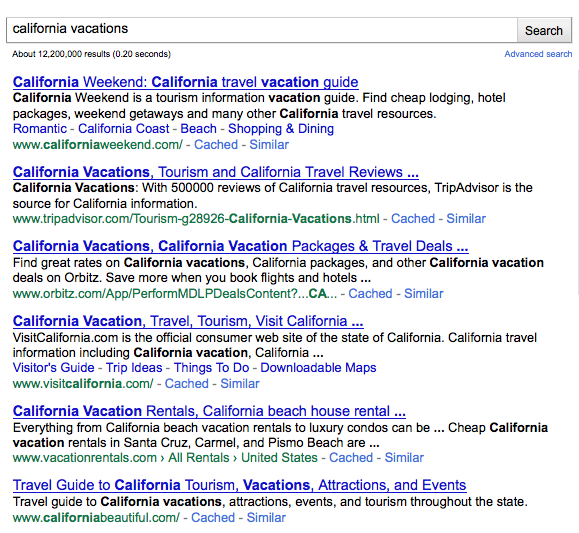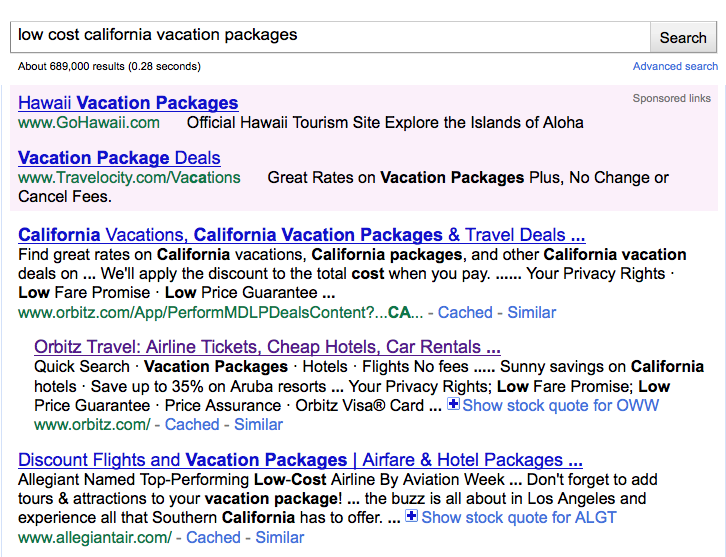Has semantic search technology changed the way we write?
“Wouldn’t it be nice if Google understood the meaning of your phrase, rather than just the words that are in the phrase?” – Eric Schmidt, Google CEO, January 2009
It’s been two years since Google* announced the use of Semantic Search Technology, what’s changed?
What is semantic search technology? According to Wikipedia, “it seeks to improve search accuracy by understanding searcher intent and the contextual meaning of terms as they appear in the searchable dataspace, whether on the Web or within a closed system, to generate more relevant results.”
What exactly does that mean for an SEO copywriter trying to appeal to the average user?
Instead of using algorithms to determine relevancy, it uses semantics, or the understanding of language, in hopes of producing highly relevant search results. Semantics looks at how the keywords relate to each other and the context of the keywords. Easier said than done, especially with our complex language full of colloquialisms, slang, idioms and words with multiple meanings.
[text_ad]
Semantic Search Technology Improves SEO Copywriting
The good news is Semantic Search Technology can actually help your SEO copywriting efforts. Users are being more specific when selecting words to search for very specific information. Keeping that in mind, target keyword phrases rather than single keywords. We recommend 3-5 word phrases.
Ask.com has mastered this technique. If you type your query in the form of a question, it is very likely that Ask.com will be a page one result in virtually any category. It doesn’t have to be complete sentences that you target, but it fits their business model well.
Another little known benefit of semantic search technology is longer snippets. With 1-2 keywords in a query, Google delivers short snippets consisting of 1-2 lines per result. In comparison, with 3 or more keywords, Google returns longer snippets usually 2-3 lines per result. This gives the user a better view of how the keywords are used in a particular website.

Google search "California vacations"

Google search "low cost California vacation packages"
Conclusion
Without human eyeballs researching every search query, there will be some room for error. Having said that, semantic search technology has benefits to SEO copywriters and users alike. No doubt, as time goes on search technology will continue to be refined, making our searches more efficient. For now though, it’s not a replacement for keyword analysis and SEO copywriting.
*This article focuses on Google, but several search engines and apps employ semantic search technology.


